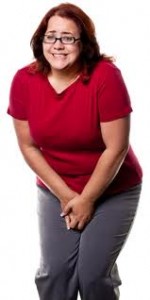 There is a lot of information on the web promoting various diets for interstitial cystitis (IC), a painful bladder condition with many different symptoms. Both the IC clinical guidelines of the American Urological Association (AUA) and the chronic pelvic pain practice bulletin of the American College of Obstetrical Gynecology (ACOG) recommend dietary modification as a useful approach for helping to manage IC and chronic pelvic pain.
There is a lot of information on the web promoting various diets for interstitial cystitis (IC), a painful bladder condition with many different symptoms. Both the IC clinical guidelines of the American Urological Association (AUA) and the chronic pelvic pain practice bulletin of the American College of Obstetrical Gynecology (ACOG) recommend dietary modification as a useful approach for helping to manage IC and chronic pelvic pain.
However, research into the link between IC and food is very limited. At this time, there is no special “IC Diet.”
IC affects 3-8 million women in the U.S. Men also have it but to a smaller degree, an estimated 1-4 million. However, in men, it is often mistaken for chronic prostatitis. Research has found that there is a lot of variability among IC patients. Some people with IC report that certain foods appear to irritate their bladders and cause painful IC flares. And they find that making a few strategic changes to what they eat and drink can help to control IC symptoms including pain, frequency, and urgency. Other IC patients find that diet does affect their flares.
Some 2,100 IC patients responded to a survey conducted by the Interstitial Cystitis Association (ICA) on complementary and alternative medicines (CAM). Diet topped the list of helpful CAM treatments. The ICA distinguished between looking for and eliminating your individual food triggers and strictly eliminating all the foods on a given “IC Diet” food list. Results were the same in both cases, strongly suggesting that you can eat happy and healthy with a wide variety of items in your diet and still keep your symptoms at bay. The survey also found that newly diagnosed patients find diet changes significantly more helpful than long-standing IC patients.
The ICA recommends eating a healthy, balanced diet. Meet with a registered dietitian (RD) to learn more about how to identify which foods and beverages might bother your IC. Also, find out if your health insurance covers the cost of nutrition counseling.
What We Know about IC & Diet
What to Eat—and What Not to Eat
Differing Approaches on IC & Diet
Source: Interstitial Cystitis Association
